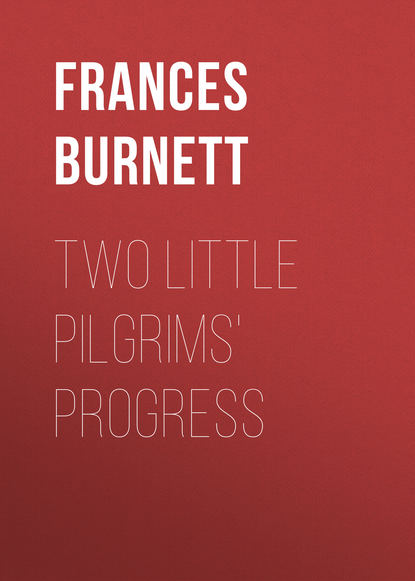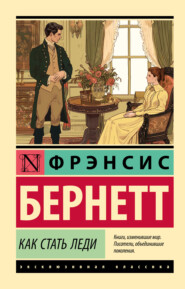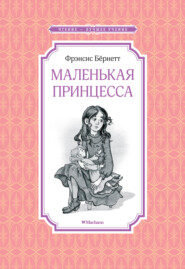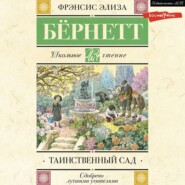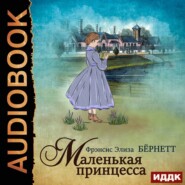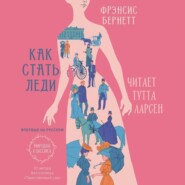По всем вопросам обращайтесь на: info@litportal.ru
(©) 2003-2024.
✖
Two Little Pilgrims' Progress
Настройки чтения
Размер шрифта
Высота строк
Поля
“I would set my mind to going to that wonderful place. I would set it to seeing everything there, and remembering all I could hold, and learning all there was to be learned – and I would set it hard.”
“So would I,” said Robin.
It was a more suggestive voice than before that he said the words in; and suddenly he got up, and went and tore away the straw from the burying-place of the Treasure. He took out the old iron bank, and brought it back to their corner.
He did it so suddenly, and with such a determined air, that Meg rather lost her breath.
“What are you going to do with the Treasure?” she asked.
“I am going to count it.”
“Why?”
He was opening the box, using the blade of a stout pocket-knife as a screwdriver.
“A return ticket to Chicago costs fourteen dollars,” he said. “I asked at the dépôt. That would be twenty-eight dollars for two people. Any one who is careful can live on a very little for a while. I want to see if we shall have money enough to go.”
“To go!” Meg cried out. “To the Fair, Robin?”
She could not believe the evidence of her ears – it sounded so daring.
“Nobody would take us!” she said. “Even if we had money enough to pay for ourselves, nobody would take us.”
“Take!” answered Robin, working at his screws. “No, nobody would. What’s the matter with taking ourselves?”
Meg sat up in the straw, conscious of a sort of shock.
“To go by ourselves, like grown-up people! To buy our tickets ourselves, and get on the train, and go all the way – alone! And walk about the Fair alone, Robin?”
“Who takes care of us here?” answered Robin. “Who has looked after us ever since father and mother died? Ourselves! Just ourselves! Whose business are we but our own? Who thinks of us, or asks if we are happy or unhappy?”
“Nobody,” said Meg. And she hid her face in her arms on her knees.
Robin went on stubbornly.
“Nobody is ever going to do it,” he said, “if we live to be hundreds of years old. I’ve thought of it when I’ve been working in the fields with Jones, and I’ve thought of it when I’ve been lying awake at night. It’s kept me awake many and many a time.”
“So it has me,” said Meg.
“And since this thing began to be talked about everywhere, I’ve thought of it more and more,” said Rob. “It means more to people like us than it does to any one else. It’s the people who never see things, who have no chances, it means the most to. And the more I think of it, the more I – I won’t let it go by me!” And all at once he threw himself face downward on the straw, and hid his face in his arms.
Meg lifted hers. There was something in the woful desperation of his movement that struck her to the heart. She had never known him do such a thing in their lives before. That was not his way. Whatsoever hard thing had happened – howsoever lonely and desolate they had felt – he had never shown his feeling in this way. She put out her hand and touched his shoulder.
“Robin!” she said. “Oh, Robin!”
“I don’t care,” he said, from the refuge of his sleeves. “We are little when we are compared with grown-up people. They would call us children; and children usually have some one to help them and tell them what to do. I’m only like this because I’ve been thinking so much and working so hard – and it does seem like an Enchanted City – but no one ever thinks we could care about anything more than if we were cats and dogs. It was not like that at home, even if we were poor.”
Then he sat up with as little warning as he had thrown himself down, and gave his eyes a fierce rub. He returned to the Treasure again.
“I’ve been making up my mind to it for days,” he said. “If we have the money we can buy our tickets and go some night without saying anything to any one. We can leave a note for Aunt Matilda, and tell her we are all right and we are coming back. She’ll be too busy to mind.”
“Do you remember that book of father’s we read?” said Meg. “That one called ‘David Copperfield.’ David ran away from the bottle place when he was younger than we are, and he had to walk all the way to Dover.”
“We shall not have to walk; and we won’t let any one take our money away from us,” said Robin.
“Are we going, really?” said Meg. “You speak as if we were truly going; and it can’t be.”
“Do you know what you said just now about believing human beings could do anything, if they set their minds to it? Let’s set our minds to it.”
“Well,” Meg answered, rather slowly, as if weighing the matter, “let’s!”
And she fell to helping to count the Treasure.
VI
Afterwards, when they looked back upon that day, they knew that the thing had decided itself then, though neither of them had said so.
“The truth was,” Robin used to say, “we had both been thinking the same thing, as we always do, but we had been thinking it in the back part of our minds. We were afraid to let it come to the front at first, because it seemed such a big thing. But it went on thinking by itself. That time, when you said ‘We shall never see it,’ and I said, ‘How do you know?’ we were both thinking about it in one way; and I know I was thinking about it when I said, ‘We are not going to stay here always. That is the first step up the Hill of Difficulty.’”
“And that day when you said you would not let it go by you,” Meg would answer, “that was the day we reached the Wicket Gate.”
It seemed very like it, for from that day their strange, unchildish purpose grew and ripened, and never for an hour was absent from the mind of either. If they had been like other children, living happy lives, full of young interests and pleasures, it might have been crossed out by other and newer things; if they had been of a slighter mental build, and less strong, they might have forgotten it; but they never did. When they had counted the Treasure, and had realized how small it was after all, they had sat and gazed at each other for a while with grave eyes, but they had only been grave, and not despairing.
“Twenty-five dollars,” said Robin. “Well, that’s not much after nearly six years; but we saved it nearly all by cents, you know, Meg.”
“And it takes a hundred cents to make a dollar,” said Meg; “and we were poor people’s children.”
“And we bought the chickens,” said Robin.
“And you have always given me a present at Christmas, Robin, even if it was only a little one. That’s six Christmases.”
“We have eight months to work in,” said Robin, calculating. “If you get four dollars a month, and I get four, that will be sixty-four dollars by next June. Twenty-five dollars and sixty-four dollars make eighty-nine. Eighty-nine dollars for us to live on and go to see all the things; because we must see them all, if we go. And I suppose we shall have to come back” – with a long breath.
“Oh, dear!” cried Meg, “how can we come back?”
“I don’t know,” said Robin. “We shall hate it, but we have nowhere else to go.”
“Perhaps we are going to seek our fortunes, and perhaps we shall find them,” said Meg; “or perhaps Aunt Matilda won’t let us come back. Rob,” with some awe, “do you think she will be angry?”
“I’ve thought about that,” Robin answered contemplatively, “and I don’t think she will. She would be too busy to care much even if we ran away and said nothing. But I shall leave a letter, and tell her we have saved our money and gone somewhere for a holiday, and we’re all right, and she need not bother.”
“She won’t bother even if she is angry,” Meg said, with mournful eyes. “She doesn’t care about us enough.”
“If she loved us,” Rob said, “and was too poor to take us herself, we couldn’t go at all. We couldn’t run away, because it would worry her so. You can’t do a thing, however much you want to do it, if it is going to hurt somebody who is good to you, and cares.”
“Well, then, we needn’t stay here because of Aunt Matilda,” said Meggy. “That’s one sure thing. It wouldn’t interfere with her ploughing if we were both to die at once.”
“No,” said Rob, deliberately, “that’s just what it would not.” And he threw himself back on the straw and clasped his hands under his head, gazing up into the dark roof above him with very reflective eyes.





